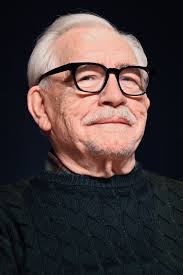
Introduction
Brian Cox, an esteemed physicist, broadcaster, and educator, has significantly impacted the way science is communicated to the public. With his engaging personality and deep understanding of complex scientific concepts, Cox has helped bring the wonders of physics to millions around the globe. His contributions are particularly relevant in today’s world, where scientific literacy is crucial for addressing global challenges.
Career and Achievements
Born on March 3, 1968, in Oldham, England, Cox began his career as a particle physicist, earning a PhD in high-energy particle physics from the University of Manchester. His early work involved research at the CERN laboratory, where he took part in experiments related to the Large Hadron Collider. Cox’s ability to distill intricate scientific theories into accessible content has made him a popular figure in science media.
His television career took off with series like “Wonders of the Universe,” which aired in 2011. It showcased the beauty of the cosmos while explaining complicated theoretical physics in a way that resonates with the general public. Following several successful series, including “Wonders of Life” and “The Universe,” Cox has not only entertained but also educated viewers about key scientific principles.
Recent Developments and Contributions
In recent months, Brian Cox has continued his work as a science communicator amid a rising global interest in astrophysics and climate science. In light of the ongoing climate crisis, Cox has used his platform to advocate for greater public understanding of scientific matters and has called for increased action regarding climate change.
His latest tour, titled “Horizons,” which started in late 2022, aims to explain scientific concepts surrounding the universe’s origins and future, combining personal anecdotes with cutting-edge research. The tour has received widespread acclaim for its ability to inspire young minds and stimulate interest in STEM careers.
Conclusion
Brian Cox stands as a beacon of popular science education, demonstrating the importance of effective communication in the field of physics. His engaging approach not only makes science accessible but also promotes a deeper appreciation for the natural world and our place within it. As he continues to explore the universe’s mysteries, Cox’s work will inspire future generations to engage with science critically. The implications of his efforts extend beyond entertainment; they are a call to action for society to embrace curiosity and the scientific method as tools to navigate the complexities of the modern world.
You may also like

An Insight into Mossbourne Victoria Park Academy

Understanding the Importance of Newsround in Children’s Media
